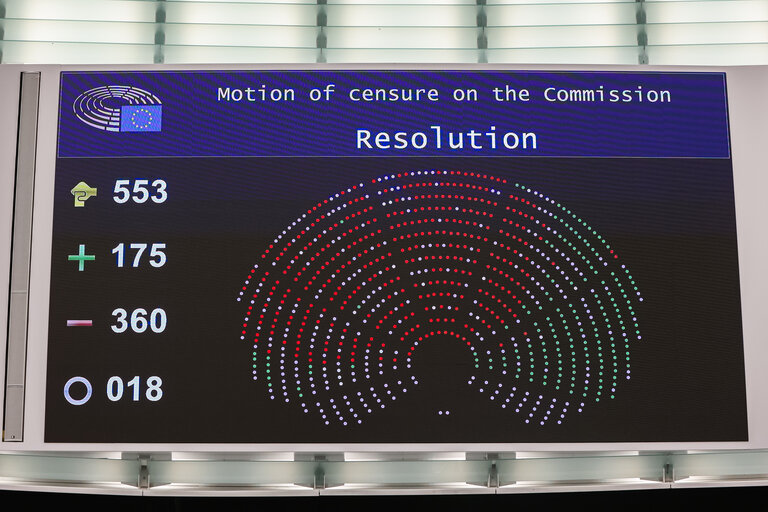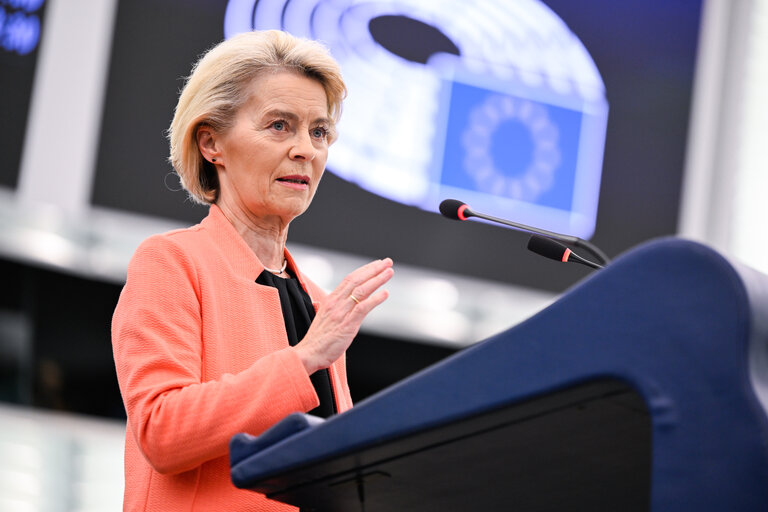European Commission President Ursula von der Leyen narrowly survived a no-confidence vote in the European Parliament this week, fending off a challenge driven largely by concerns from both the far-left and far-right. Yet despite the formal victory, cracks are widening in her own pro-European coalition—signaling that her leadership is far from secure as the EU braces for a pivotal new legislative cycle.
The vote, which failed by a wide margin with only 175 MEPs backing the motion and 360 opposing it, came in the wake of mounting tensions over von der Leyen’s political maneuvering during her bid for a second term. While the European Parliament appears unwiling to topple the entire VDL Commission, her increasingly questionable alliances with extremist forces have sparked unease among many of her original supporters, particularly those in the liberal Renew Europe group and centrist parties that helped elevate her in 2019 and 2024.
Chief among the concerns: von der Leyen’s apparent openness to engaging with the hard-right European Conservatives and Reformists (ECR), a move viewed by many as a betrayal of the pro-European consensus she once championed.
“For too long, Ursula von der Leyen has multiplied shifting majorities, sacrificing European coherence,” said Sandro Gozi, MEP and Secretary General of the European Democratic Party (EDP). “Parliament demands a clear course: rule of law, defense, competitiveness, the Green Deal, institutional reforms. Otherwise, no majority. No pact with the far right!”
These criticisms reflect a broader discomfort within the Parliament’s pro-European majority, which includes the centrist Renew Europe group, the Greens, and much of the Socialists & Democrats (S&D) bloc. Together, these groups enabled von der Leyen’s election—and their support remains essential if she hopes to secure a second mandate in the coming weeks.

“Madam von der Leyen, who are your allies in this Parliament?” asked Valérie Hayer, Chair of Renew Europe, in a pointed floor speech. “The far right, or the pro-European majority that elected you a year ago? Nothing is guaranteed. Bring order to your political family. We expect you to take back the reins so that the pro-European agenda we share with you can finally see the light of day.”
Von der Leyen, a German conservative from the European People’s Party (EPP), has attempted to walk a tightrope between holding together a fragmented Parliament and pushing forward with landmark EU initiatives, including support for Ukraine, bureaucratic simplication, and deeper defense cooperation. But as Europe enters a period of geopolitical uncertainty and domestic discontent, the demands for clarity and ideological consistency are growing louder.
Engin Eroglu, EDP Executive Vice President and MEP, echoed the call for renewed democratic legitimacy and purpose: “The call for a credible, transparent, and citizen-focused Europe is not an empty phrase, but the benchmark of our political action. Those who do not meet this standard cannot count on our support—not even in the highest office of the European Commission.”
Despite winning the no-confidence vote, von der Leyen’s authority now hinges on her ability to reassure her democratic allies and present a renewed vision for a united, progressive Europe. Her next steps—particularly her outreach to political groups and how she constructs her governing coalition—will determine not only her political fate but also the EU’s direction for years to come.
The stakes could hardly be higher for the VDL Commission and the EU as a whole. With the MFF proposal being unveiled next week and VDL gearing up give her key State of the European Union adress once Parliament returns from the summer break, the Commission President will need to demonstrate she is still capable of leading the EU and delivering on the policy agenda supported by the mainstream political groups in the EP. Whether Ursula von der Leyen can still deliver that leadership remains to be seen—but the pro-European bloc has made one thing clear: compromise with extremism is not an option.










